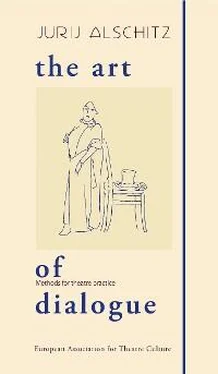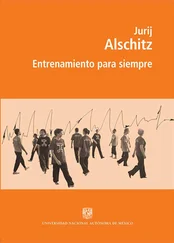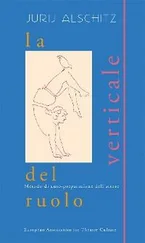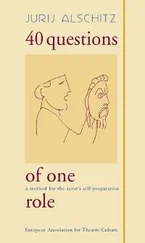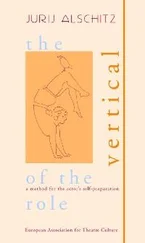In this way, a hunger and a striving to be whole is called love. To repeat – before, we were something whole, and now, we have been re-made separately by the gods, like Lacedaemonian Arcadians. (…) Our race will reach bliss when we fully satisfy Eros and each finds their corresponding object of love in order to return to our original nature. But if the best must come from what there is now, then it’s best to admit what is the closest to being the best: to meet an object of love who is akin to you. And consequently, if we want to praise god, who gave us this gift, we ought to worship Eros: not only does Eros bring us great benefit now, directing us towards what is close and akin to us, he promises us, if we only honour the gods, a beautiful future, for he will make us happy and blessed, making us whole and returning us to our original nature. 5
Don’t you agree – that’s another originating source of energy of Dialogue – the crazy hunger for wholeness. It’s beautiful! Who can say it better than Plato, who let Aristophanes tell this myth?! Dialogue – is this meeting between two separated halves… of one from the other: Romeo and Juliet, Masha and Vershinin, Estragon and Pozzo. They have been separated for hundreds of years and just now, at fate’s will, under our gaze, they are meeting and recognising each other as their half. The period of loneliness was compressed like a spring – that’s energy! and now it is beginning to work. That’s the spring of dialogue. This period of separation is over. Everything which happened to me is mine, but is also yours, ours. It is not disappearing anywhere but is poured into the shared foundations of the dialogue. In Thomas Mann’s novel Joseph and His Brothers, there is a description of the first meeting of Jacob and Rachel – they recognise each other immediately, at first sight, as well as their whole history, everything which was and everything which will be. They enter into a conversation, not understanding the language spoken by the person in front of them, as if they are continuing a dialogue begun by them long, long ago.
This is the EXERCISE for actors, this is the task – to begin a dialogue on stage in this way. As if without beginning, without a first line, but as if continuing a conversation which began a hundred years ago, as if you are participants of one whole which was separated infinitely long ago.
It’s that simple – one character and another character; they have so many differences, so many subjects for debate, in brief, there’s plenty of material for a living dialogue. But let’s look at them in a different way. Imagine that a hundred thousand years ago they came out of one place, breathed in one air, spoke in one language, moreover – they were one whole being and they were separated. Now, hundreds of years have passed, each one has had their own life, separate from the other, and now they meet. It seems as if there is nothing shared between them, no shared language unites them, no worldview, no faith, nothing. But they know by some scent, sound, feeling, sub-subconscious, that they are parts of one whole, that only together will they create an authentic whole being. What is that? What is the meeting with your second half? What exactly is wholeness? All wholeness of individuality, which before seemed to us to be final, suddenly appears only as part of a something new, unknown. And now you feel some obscure, but strong attraction, a premonition of a unique dialogical contact leading you to a new Unity. In that way, people remember their kinship with the cosmos. There are no facts and therefore it’s not just human memory. It is non-human memory. It is no memory at all, but a metaphysical attraction. That’s energy! Metaphysical energy is always present in dialogue. How little we actors think about this but we want to play dialogue well. Rarely do we reminisce about our involvement in the Absolute.
Look at the scene when Rachel meets Jacob in Thomas Mann’s novel Joseph and His Brothers. Please excuse me for jumping from Plato to the twentieth century. But this scene is so beautiful and it will explain everything to you better than I, or even, Plato could.
Thus first he beheld her, his heart’s destiny, his soul’s bride, for whose lovely eyes he was to serve fourteen years, the mother sheep of lamb (…)
“Here am I,” said she; like a short-sighted person she contracted her eyes, but then lifted her brows in surprise and delight as she added: “Lo, a stranger!” (…)
“Whence cometh my lord?” He pointed westwards over his shoulder and said “Amurru”.
She turned towards Jerubbaal and laughing beckoned him with a motion of her chin.
“So far?” said she, in words and gestures. And then she asked in more detail, saying that the west was wide, and naming two or three of its cities.
“Beersheba,” Jacob answered.
She started and repeated the word, and her mouth, which he had already begun to love, shaped the name of Isaac.
His face twitched, his mild eyes ran over. He did not know Laban’s people and would not have been eager for contact with them. He was an outlaw, stolen to the lower world, not here of his own will, and felt not much cause for soft emotion. But his nerves gave way; under the strain of the journey they had gone soft. He was at his goal, and this maiden, with eyes so darkly sweet, uttered his far-off father’s name and was his mother’s brother’s child.
“Rachel,” said he, with a sob, and put out his arms to her, his hands trembling. “May I kiss thee?”
“How canst though claim such a right?” she asked, and retreated in smiling dismay. She gave no sign of suspecting anything, just as before she had not seemed to mark the presence of a stranger.
But with one arm stretched out towards her he pointed to his own breast. “Jacob, Jacob,” he said. “I! Yitzchak’s son, Rebecca’s son, Laban, thou, I, child of mother, child of brother…”
She gave a little cry. She put one hand on his breast and so held him away from her as together they reckoned up the kinship between them, laughing, but with tears in both their eyes. They cried out names, nodded their heads, making out the genealogical tree by signs to each other, putting their forefingers together, crossing them, or laying the left across the tip of the right.
“Laban - Rebecca,” cried she. “Bethuel, son of Nahor and Milka! Thy grandfather and mine!”
“Terah,” cried he. “Abram - Isaac, Nahor - Bethuel! Abram - forefather, thine and mine.”
“Laban - Adina,” cried she. “Leah and Rachel! Sisters, cousins, thine!”
They nodded to each other over and over, amid tears, while they came to the conclusion as to the blood relationship between them, through both his parents and through her father. She gave him her cheeks and he kissed her solemnly. Three dogs sprang at them baying, as the creatures do when men, for good or evil, lay hands on each other. The shepherds applauded rhythmically, singing in high head-tones: “Lu, lu, lu!” So he kissed her, first on one cheek then on the other. He forbade his senses to perceive more of her femininity than just the softness of her cheeks, he kissed her reverently; but the friendly darkness of her eyes had bewitched him already, and he felt favoured to have received her kiss at once. Many a one must look longingly, desire and serve, before there would be incredibly vouchsafed to him that which had fallen at once as it were into Jacob’s lap, because he was the cousin from afar. 6
Look what happens to the dogs and shepherds! The energy of the meeting overcomes them too, that is why they are happy, they jump and sing like mad people. The real dialogue always produces a mass of energy and everyone present in the field of energy (in theatre – it’s the spectators) will be affected by it. This kind of Dialogue is constructed on the energy of confluence, contact, striving towards one’s own self-development and the revelation of the Other; on the energy of joy of the transformation of oneself and the other. Without the energy of creation, the energy of revelation, the energy of artistry, there won’t be a dialogue.
Читать дальше
